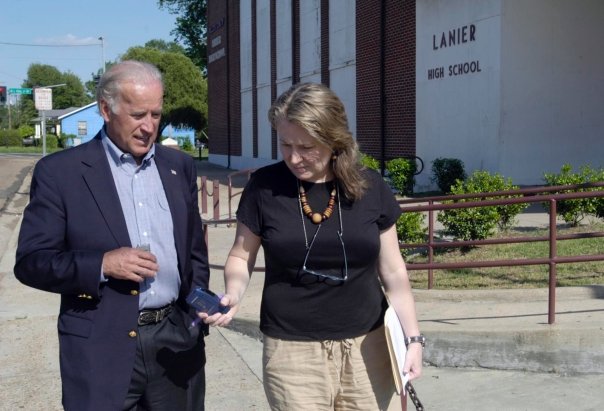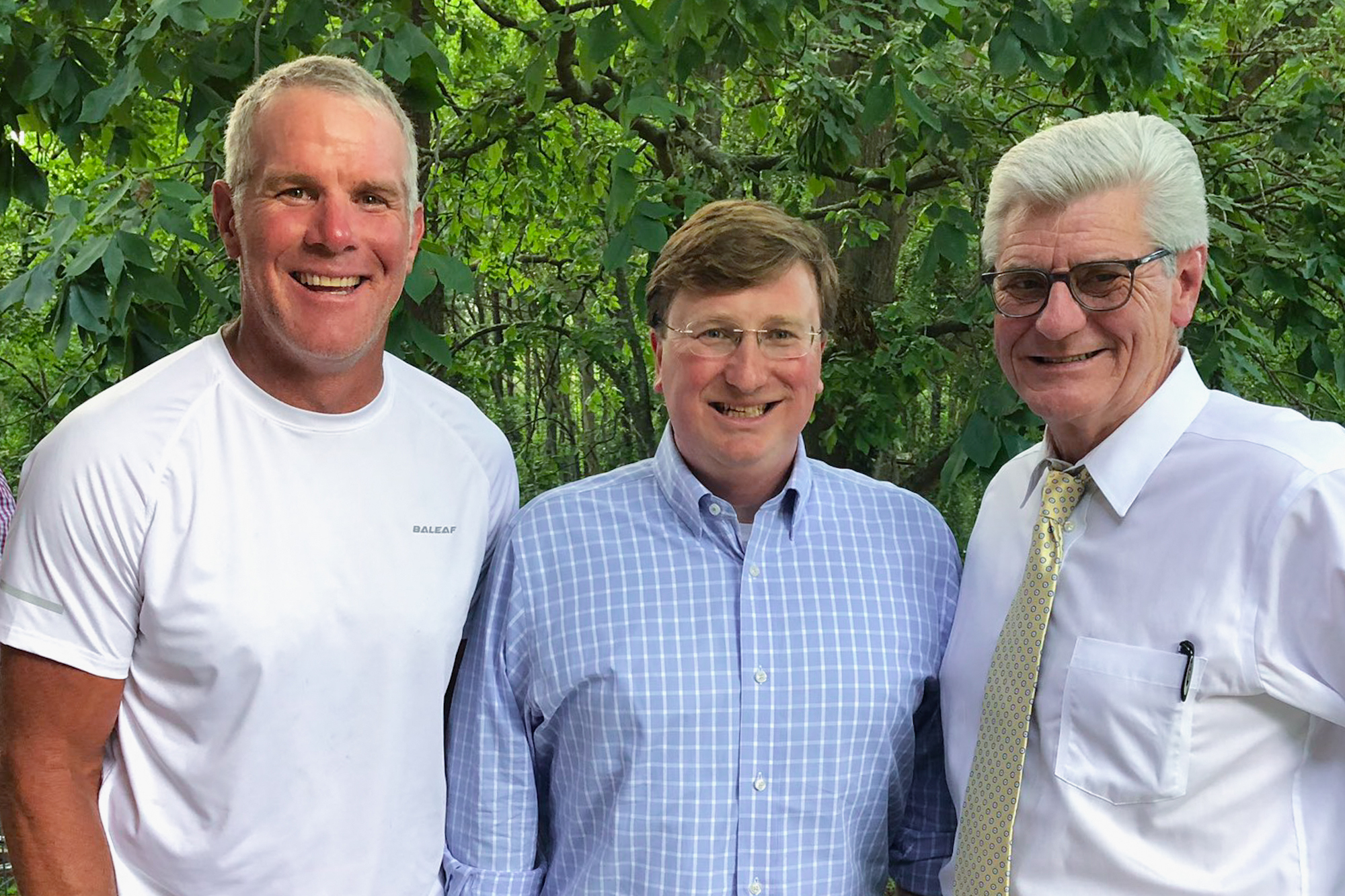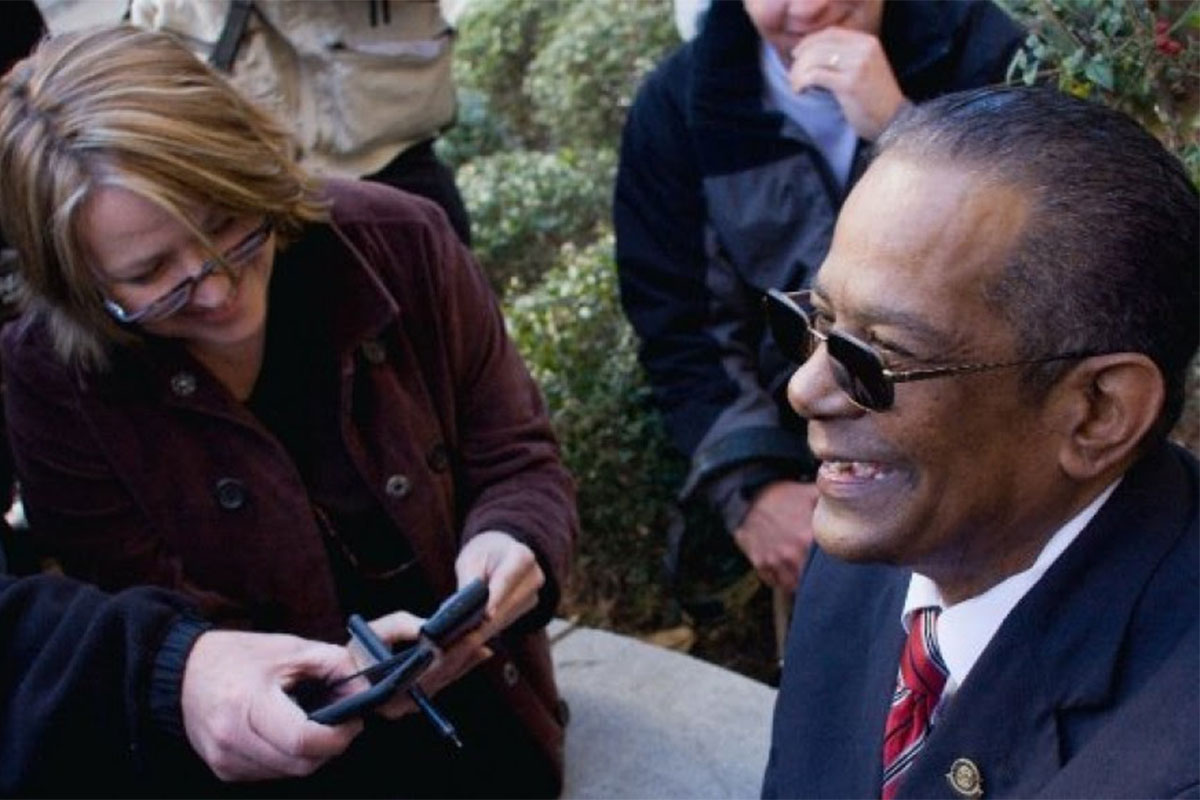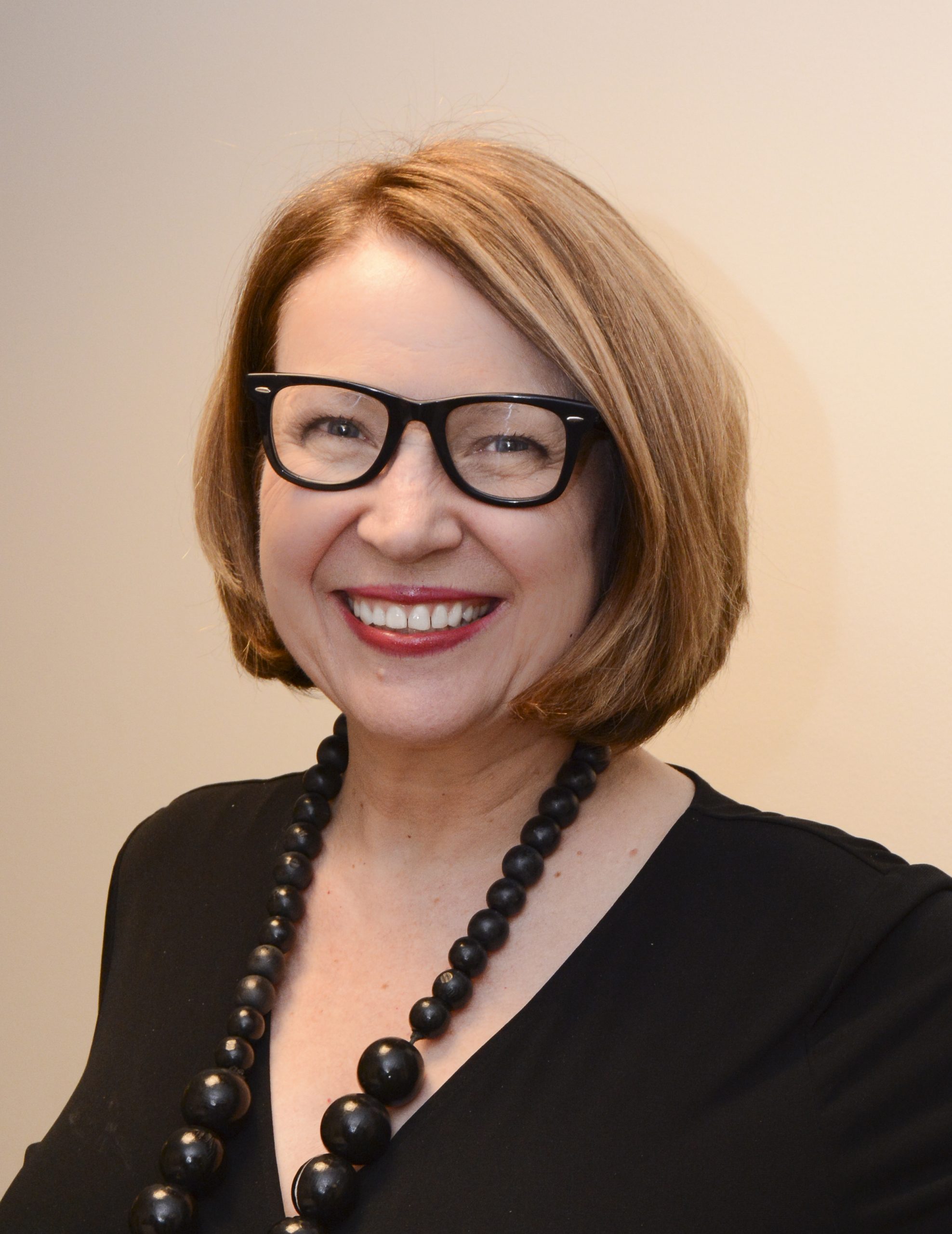I woke up this morning thinking about navigating the often-rough and often-delightful waters of the last 20 years of Free Press journalism in Mississippi. I then saw a picture pop up on my Facebook page from 20 years ago with Bingo Gunter, then a manager at Hal & Mal’s who would become the Jackson Free Press’ first assistant editor and now a powerhouse South Carolina academic focused on real history and race equity. We were hugging Sherri Williams, then a Clarion-Ledger reporter who introduced me to a lot of people as we were starting the JFP, and now is a badass national journalism educator and thinker in Washington, D.C.
We were younger then with the glow of hope and friendship all over our faces. But we were all locked in on making Mississippi, and thus the nation, a better place through tough journalism, truth-telling and facing our collective past. We all still are.
I didn’t co-found the JFP 20 years ago, nor did Kimberly Griffin and I start the Mississippi Free Press in 2020, to please anyone of any party or any other distinction all the time, and we don’t. We started these publications not only to tell the real truth in Mississippi without pulling needed punches that don’t fit certain narratives, but also to challenge other media to do the same thing.
Mississippi journalism was terrible on that front in 2002 and riddled with what I now call toxic scoop culture—the rush to be the “only” or the “first” or some other silly superlative that doesn’t mean squat to the people of Mississippi, just to egos inside our industry. And the resulting efforts to shut down media like us here are now legend.
Ruffling Necessary Feathers Along The Way
In 2002, we envisioned creating a real free press in Mississippi, meaning not beholden to advertisers and usual powerful suspects who try to control everything, including thought and the flow of information. We knew it would be hard work to pull off, though, and that we would ruffle feathers along the way, both inside and outside journalism.
That is a necessary part of doing this well; journalism requires tough skin. Changing systems and power structures is hard and often thankless work. It can mean deciding to tour a presidential candidate like Joe Biden through Jackson’s under-served neighborhoods (forgoing the suggested interview at a trendy North Jackson restaurant) to putting on a bulletproof vest to see the harm Mayor Frank Melton was doing first-hand in Black communities or daring to report the truth about “tort reform” that other state journalists left out. (I did all three.)
But, what we ultimately envisioned in 2021, beyond the defensiveness and excuses inherent in challenging harmful horse-race reporting and giving the powerful a pass, was a new kind of journalism ecosystem here.

In this healthy alternative journalism universe we seek, outlets work together when it makes sense; compete in a healthy way rather than through cowardly whispered smears and unethical control schemes; build on each other’s work; credit other journalists for their enterprise work (not for publishing a press release first; duh); and, yes, even fact check other newsrooms’ reporting and expose ethical violation as necessary to help the public and build trust.
This is the kind of accountable ecosystem where journalists can be truly collaborative; you cover that, and we’ll cover this. Or, we’ll use our skills to create an amazing timeline that credits and links to the enterprise work of various journalists and links to original documents, as Ashton Pittman did recently in MIssissippi’s welfare scandal (which he will continually update). Or, we will collaborate with different outlets on the same story or series, as long as all are respectful to both journalism ethics and the people in other newsrooms, across race, ethnicity, gender and other differences. And be open to healthy critique.
Progress in Journalism Ecosystem, Gumption
Twenty years after the JFP launched doing the kinds of systems-focused journalism so many were afraid to do, and about 2.5 years into MFP going even deeper statewide, the Mississippi journalism report card is still mixed. But there is great progress afoot, no doubt.
Overall, the level of journalism and the gumption to ask real questions (and, gasp, to offend the powerful) has gone up here, even among TV journalists (a real harbinger of progress). And I think we’re even starting to break through on the perils of horserace and access journalism, although the 2019 state election coverage might have been the worst ever on this front, and that is saying something in Mississippi.

Plus, more outlets are following our lead and crediting other outlets for enterprise reporting, although we’ll still see some ignore a big story for a while so they don’t have to credit a “competitor” or just do a cartoon about another outlet’s big story without crediting the original. And after years of shaming on this front, some even now name the enterprise journalist who did the original work as we usually do. Occasionally.
All of this progress serves the bigger journalism picture in Mississippi: reporters, editors and newsrooms putting institutional ego and the need to have a lifetime deed on a big story to the side; working with mutually respectful news organizations; and keeping all eyes on the only prize that really matters. That is, doing deep, truth-to-power journalism that interrogates systems and leans on not just catching the bad guy, but reporting ways to fix the trapdoors that allowed it to happen.
That will change Mississippians’ lives and futures.
Great Mississippi Journalism Must Be Truly Local
The funny part about journalism improving in Mississippi is that, suddenly, others want to do it here, too. That can be very helpful—or it can be a resource sucked by folks who do not understand Mississippi and aren’t truly invested. Perhaps they’re stopping by Mississippi for a spell to rack up awards to help work their way up the national journalism ladder.

But it’s vital to understand why the Mississippi Free Press is so different and is attracting so much national attention. The strength of journalism in Mississippi lies in newsrooms led by and filled with people who care deeply for our state who have institutional understanding and connections—like MFP’s newsroom of brilliant professionals who grew up here (plus that amazing Kayode Crown, who didn’t). They are where the magic of our future awaits.
But these brilliant Mississippians need respect, resources, training opportunities, and a reason to stay home rather than flee for better opportunities and more pay. Providing those resources will change this state, mark my words.
It is already, in fact.
Not Life I Expected, But One I Cherish
I happen to turn 61 this weekend. Many of you know I fled Mississippi the day after I graduated from Mississippi State, saying I would never live here again after growing up as an outspoken kid getting in trouble for being mouthy about “prejudice,” sexism and general hatefulness. I returned 18 years later, and now have lived (and told the hard truth) in my home state for about 42 years. It’s not the life I expected, but it is one I cherish.
Also know that I’m happy to take (and deflect) hits on the road to growing a stronger Mississippi and extend the legacy of Free Press journalism here far into the future under new and emerging leaders you’re all helping train and keep in our state.
All of you know that the MFP team is doing remarkable work for our state. For my 61st birthday this week, I urge you to give whatever amount you can afford, perhaps with a 6 or 61 in the amount, to help support and grow this stunning team, many of whom worked at the JFP before our nonprofit acquired its journalism assets.
We need this team to stay in Mississippi, and we need to get them help from more journalists with the same tough, collaborative, caring approach to journalism.
Thank you for everything, and let’s all stay this course to grow the best local journalism ecosystem in the country.
This MFP Voices essay does not necessarily represent the views of the Mississippi Free Press, its staff or board members. To submit an essay for the MFP Voices section, send up to 1,200 words and factcheck information to azia@mississippifreepress.org. We welcome a wide variety of viewpoints.






